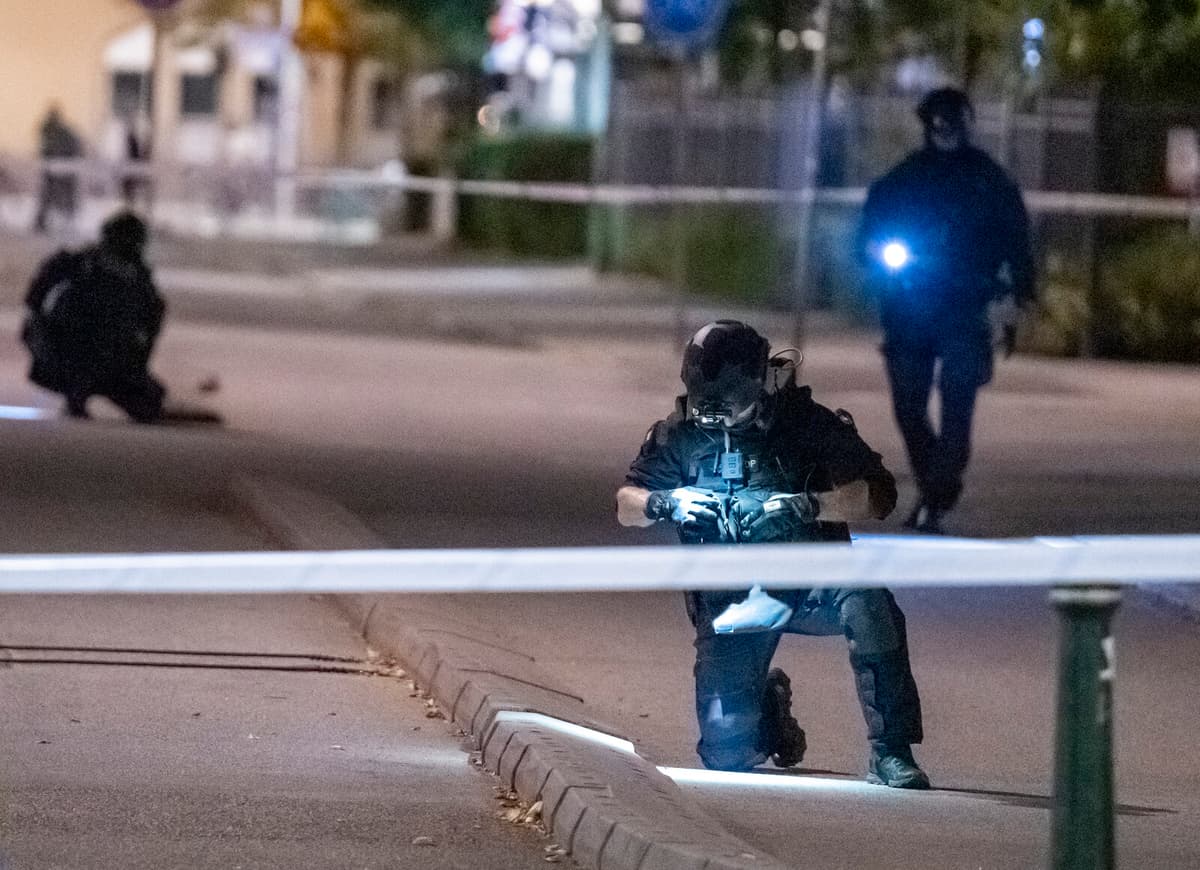A 15-year-old boy who is suspected of having been assigned to carry out a bombing died when the explosive charge detonated in Östberga in southern Stockholm in August. Two boys of the same age are detained for involvement.
The boy is believed in this case to have been recruited by a criminal network via a school and a sports association. But in general, recruitment takes place in all environments where young people are, according to prosecutor Lukas Tigerstrand, who compares it to grooming on the internet.
Recruitment often takes place in a sophisticated way. You approach the young people with a long-term purpose of getting them to commit violent crimes, become friends with them first and they can get things, he says.
Quick money
August Knutsson, operational coordinator at the police's national operations center, shares the picture that recruitment takes place both out in society and in chat rooms. In chat rooms, it can go much faster from when contact is established to when a violent mission is put out in exchange for money.
It's a matter of hours – not days or weeks.
He says it's hard to answer how young people think when they take on, for example, a bombing mission.
I don't think the risk awareness is particularly great. There are probably thousands of different reasons, but some we usually talk about are quick money, status, and being part of a kind of community.
Some may also have been subjected to pressure or blackmail.
There are children who take on missions, but who realize "oh, this is dangerous" and when they try to back out, there is a great risk of threats and violence against them or their relatives.
Brutal injuries
August Knutsson is not aware of any similar cases with a fatal outcome closer than 20 years back in time. However, the police are aware of six events this year – bombings and arson attacks – where young perpetrators have been injured.
The injury picture becomes brutal when something detonates. There are examples of a blown-off hand and shrapnel injuries in the body, in addition to burns and hearing damage.
Since the police have seen examples of how young perpetrators pick up a hand grenade or a homemade bomb that has not detonated and take the object with them, August Knutsson is surprised that not more people are injured.
On such an occasion, it's pure luck that this individual doesn't die.
Keep an eye out for changed behavior. Warning signs can be everything from expensive items being brought home to suspicions of drug use or children sneaking away with their mobile phone.
August Knutsson also advises parents to have an ongoing dialogue with their children and keep track of what they do in the digital environment.
Get in touch with the police as early as possible if you have worrying information about a young person, whether you are a parent or another adult. Then we can really influence the problem, he says.
Source: August Knutsson, operational coordinator at the police's national operations center






